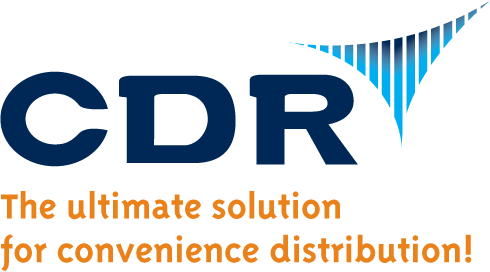Learn how ERP solutions help distribution businesses stay compliant with regulatory requirements while optimizing their operations and reducing risks.
Running a busy convenience distribution center comes with a unique set of challenges. As you work to ensure that store shelves are consistently stocked with the latest snacks, beverages, and tobacco products, the task of staying compliant with a constantly shifting regulatory landscape looms large. From food safety protocols to tobacco distribution laws, the regulations governing your operations are increasingly complex, and non-compliance can lead to hefty fines or even business disruptions.
For convenience distributors, the pressure to maintain both compliance and operational efficiency can be overwhelming. However, there is a way to streamline your compliance efforts and keep pace with these regulatory changes effortlessly. Enter ERP regulatory compliance tools. A specialized ERP system tailored to the specific needs of convenience distributors can be the key to navigating the regulatory maze and ensuring your business remains on the right side of the law.
Overview of Recent Regulatory Changes in Convenience Distribution
In the fast-paced world of convenience distribution, staying up-to-date with regulatory changes is not just a necessity—it’s a critical component of maintaining smooth operations. Let’s dive into some of the most significant recent regulatory updates that impact your business, from food safety to tobacco control.
Food Safety Modernization Act (FSMA)
The Food Safety Modernization Act (FSMA) has introduced stringent new rules that affect how you handle food products. With a focus on preventing contamination, these updates include more rigorous traceability requirements and mandatory safety audits. For distributors, this means having a system in place that can track the journey of every food item from supplier to store shelf. Not only does this enhance food safety, but it also prepares your business for any unexpected audits, ensuring that you’re always a step ahead.
Tobacco Control Act Compliance
Tobacco distribution is under increased scrutiny due to the Family Smoking Prevention and Tobacco Control Act, which has introduced several new regulations. These include updated licensing requirements, stricter advertising restrictions, and a push for better age verification processes. If you’re handling tobacco products, it’s crucial to ensure that every part of your distribution process complies with these regulations. Failure to do so could result in significant penalties, not to mention damage to your business’s reputation.
State-Level Regulations
While federal laws set the baseline, state-specific regulations can add another layer of complexity. Whether it’s variations in tobacco laws or additional food safety requirements, staying compliant across different states can be a challenge. This is particularly relevant if your distribution network spans multiple states, each with its own set of rules. Staying informed about the specific regulations in each state and ensuring that your distribution practices align with these requirements is crucial to avoiding costly compliance errors.
Data Privacy Laws
In an increasingly digital world, data privacy has become a hot topic, and laws like the General Data Protection Regulation (GDPR) and California Consumer Privacy Act (CCPA) are setting the standards. If your business engages in online sales or loyalty programs, you need to be vigilant about how you manage and protect customer data. Non-compliance can lead to hefty fines and a loss of customer trust, making it vital to have a robust system in place for managing data privacy requirements.

Challenges of Staying Compliant in the Convenience Distribution Sector
Navigating the complex web of regulations in convenience distribution can be a daunting task, especially when you’re dealing with a wide range of products—from perishable foods to tobacco. Let’s explore some of the key challenges that distributors like you face when it comes to staying compliant.
Manual Compliance Processes
For many distributors, compliance tracking has traditionally been a manual process. While this might have worked in the past, the increasing complexity of regulations has made manual tracking a risky approach. Relying on spreadsheets or paper records can lead to errors, missed deadlines, and incomplete data, all of which can result in non-compliance. Moreover, as your business grows and you handle more products and suppliers, these manual processes become even more cumbersome and prone to mistakes.
Imagine having to manually track the sourcing, handling, and distribution of every product in your inventory, ensuring that each one meets the relevant safety and regulatory standards. It’s not just time-consuming; it’s also nearly impossible to do accurately at scale. This is where many distributors fall short, leading to gaps in compliance that could have serious consequences.
Fragmented Systems
Another significant challenge is the use of multiple, disconnected systems across your operations. It’s common for different departments—such as inventory management, sales, and finance—to each use their own software or tracking methods. While these systems may operate effectively on their own, they can create data silos that make it difficult to achieve a cohesive understanding of your overall operations.
For example, your inventory system might manage product quantities, while your sales system handles customer transactions, but neither integrates fully with other parts of your business. This lack of integration can lead to inefficiencies and gaps in communication, making it challenging to maintain consistency and ensure all operational aspects are aligned with your business goals.
Increased Regulatory Scrutiny
In today’s regulatory environment, there’s growing pressure from both regulatory bodies and the public for greater transparency and accountability. Whether it’s ensuring the safety of the food products you distribute or complying with strict tobacco regulations, the expectations on distributors are higher than ever before.
Regulatory bodies are conducting more frequent and thorough audits, and any lapse in compliance can result in significant penalties, not to mention the reputational damage that comes with public scrutiny. For convenience distributors, this means that maintaining compliance is not just about following the rules—it’s about demonstrating a proactive commitment to upholding the highest standards of safety and quality.
How an ERP System Aids Compliance in Convenience Distribution
Given the challenges outlined above, it’s clear that relying on outdated or fragmented systems is no longer sufficient. To effectively manage compliance, convenience distributors need a robust, integrated solution—this is where an ERP system comes into play.
Centralized Data Management for Diverse Product Lines
One of the most powerful features of an ERP system is its ability to centralize data across your entire operation. Whether you’re dealing with food, beverages, candy, snacks, or tobacco, an ERP system brings all your compliance-related data into one place. This means you can easily track and manage the regulatory requirements for each product category, ensuring that nothing slips through the cracks.
With centralized data management, you have a single source of truth, making it easier to generate accurate compliance reports, respond to regulatory inquiries, and maintain a consistent standard across all aspects of your distribution process. This level of integration is crucial for maintaining compliance in today’s complex regulatory environment.
Enhanced Traceability
In the event of a product recall or regulatory audit, having comprehensive traceability is crucial. An ERP system enables full traceability for your products, allowing you to monitor each item from the supplier to the store shelf. This visibility is essential for swiftly addressing compliance issues, such as identifying the source of a food contamination or ensuring that your products meet all regulatory requirements.
With enhanced traceability, you can respond promptly to regulatory inquiries, recalls, or other compliance challenges, minimizing disruptions to your business and maintaining customer trust. Whether it’s tracking the supply chain for food products or managing tobacco distribution compliance, an ERP system ensures you have the necessary tools to stay compliant and efficient.
Related: Why Specialized Software Matters for Convenience Store Distribution
![]()
Choosing the Right ERP System for Convenience Distribution Compliance
Key Features for Convenience Distributors
When evaluating ERP systems, it’s essential to prioritize features that directly address the unique challenges of your industry. Look for systems that offer:
- Regulatory Compliance Tools: Ensure the system includes robust tools for maintaining compliance with various industry regulations, helping you stay aligned with legal requirements and avoid potential fines.
- Centralized Data Management: A system that consolidates all your critical data across different product categories and departments is essential for maintaining accuracy and consistency in your operations.
- Scalability and Flexibility: Choose an ERP system that can grow with your business and adapt to new operational demands. This ensures that as your business expands—whether by entering new markets or adding new product lines—the ERP system will continue to meet your needs without causing disruptions.
- Vendor Expertise in Convenience Distribution: Select a vendor with deep knowledge of the convenience distribution industry who can offer solutions tailored to your specific operational challenges and regulatory environment.
- Ongoing Support and Training: Look for a vendor that provides continuous support and training, ensuring that your team can fully utilize the ERP system as your business evolves. This support helps maximize the value of your ERP investment and keeps your team prepared for any changes.
Why DAC ERP is the Right Choice for Convenience Distributors
After considering what’s essential in an ERP system, DAC ERP by CDR Software clearly stands out as the ideal solution for convenience distributors. Here’s why:
- Centralized Data Management: Our system centralizes all critical data, offering a unified platform to manage multiple product categories and geographic locations. This approach improves reporting accuracy and operational consistency.
- Scalability and Adaptability: DAC ERP scales with your business, accommodating new operational requirements and product lines without disrupting your operations. It is designed to adapt as your business grows and changes, ensuring continuous alignment with business needs.
- Industry Expertise: With years of experience in the convenience distribution sector, CDR Software understands the unique challenges you face. We provide solutions tailored to your specific needs, enhancing both operational efficiency and compliance.
- Ongoing Support and Training: CDR Software offers continuous support and training to help your team fully utilize DAC ERP. This ensures that your team stays prepared and that your ERP system remains effective as regulations and business conditions evolve.
By choosing DAC ERP, you’re partnering with a team committed to your success. Our ERP solution is designed to help you navigate the complexities of regulatory compliance while optimizing your operations for growth.
ERP Regulatory Compliance Conclusion
Navigating the complex regulatory environment of convenience distribution is no easy task. A robust ERP system like DAC ERP, designed specifically for our industry, ensures compliance through centralized data management, enhanced traceability, and scalability. By choosing DAC ERP, you align with a partner committed to your success, reducing risks, optimizing operations, and positioning your business for long-term growth.
Ready to take your compliance strategy to the next level? Discover how CDR Software’s DAC ERP solution can help you stay compliant and optimize your operations. Contact us today for a personalized demo and see how our system can be tailored to meet your specific needs and challenges.
Frequently Asked Questions
Why is regulatory compliance critical for convenience-store distributors?
Distributors in this sector handle regulated products such as tobacco and candy and must meet strict reporting standards. Noncompliance can result in fines, lost rebates, and ineligible purchasing status with manufacturers.
What types of compliance reporting do distributors commonly need?
Distributors typically handle MSA MULTICAT reporting and other manufacturer-specific formats, tobacco and candy compliance, tax jurisdiction tracking, and audits tied to rebate programs or promotional incentives.
How can ERP systems support regulatory compliance?
Industry-specific ERP solutions automate required formats, track rebate eligibility, manage promotion rules, and validate product-level compliance. They help ensure accurate reporting and streamline manufacturer and tax-submission workflows.
What best practices help maintain regulatory compliance using ERP?
Ensure product information is up‑to‑date, enforce standardized transaction workflows, schedule routine audits, configure automated validation rules, and monitor compliance dashboards. Regular team training is essential for consistent accuracy.
What are the benefits of compliance-ready ERP for distributors?
Using a compliance-ready system reduces manual error, speeds up reporting processes, preserves rebate eligibility, maintains goodwill with manufacturers, and ensures regulatory standards are met reliably and efficiently.

